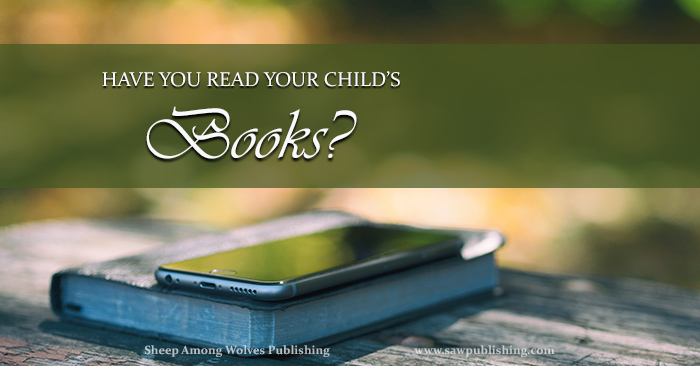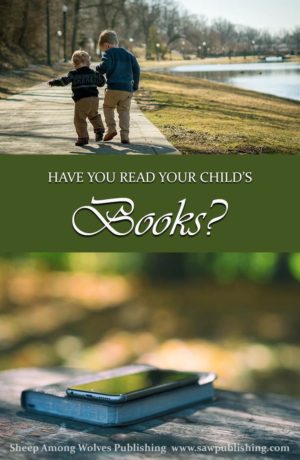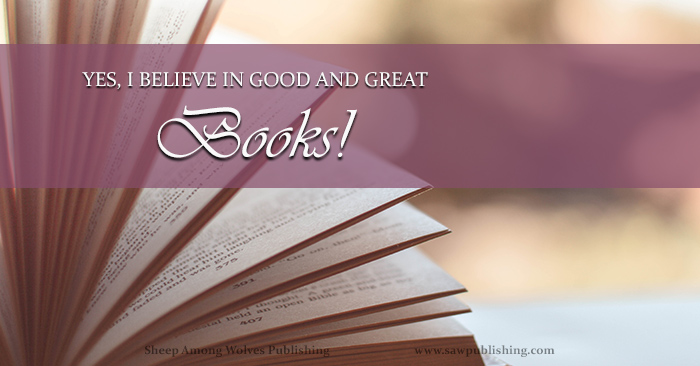Have You Read Your Child’s Books?
 Have you read your child’s books?
Have you read your child’s books?
I know that’s a bit of a difficult question. In theory, every mother thinks it would be a nice thing if she had time to read the books her child is reading. But in the frantic flurry of daily life, we all know that “nice things” have a tendency to fall by the wayside.
If you are going to read your child’s books, it will have to be because you see it as something more than a nice idea. If you are going to devote precious hours to the task of reading stories, it is going to be because you really believe reading your child’s books is something big enough to make a difference in their life.
So what do you get when your read your child’s books? What are the benefits that will result from the effort it is certainly going to take?
 1) The Ability to Choose Worthwhile Content
1) The Ability to Choose Worthwhile Content
This was the point which came to mind when I first decided to write this post. Most children have an instinct to read to the end of a story. (Except when they find the story boring, of course!) It takes wisdom and maturity to put an undesirable story aside. In fact, it takes wisdom and maturity to know when a story is undesirable in the first place!
It is a blessing when we have authors, publishers, and reviewers whose standards we can rely on. But no two families are exactly alike. No two children are exactly alike. A book which might be appropriate and desirable in one context is not necessarily a blessing in all contexts.
If you want to give your child the legacy of good and great books, you need to know whether the books they are reading are good and great. And the best way of knowing is to read them yourself!
2) The Ability to Understand Your Child’s Thoughts
This idea comes from last year’s Timeless Tip, “Do You Know What They’re Reading?” In that post we quoted Victorian author, Charlotte Mary Yonge, as she suggested that a mother gains a valuable insight into her child’s mind when she is familiar with the child’s reading material.
Most of a child’s thoughts are simply echoes that they have gleaned from those around them—either the people they interact with personally or those they come in contact with through books or media.
Understanding the ideas, the problems, and the solutions your child has been introduced to through books gives you a huge advantage in understanding what and how they are thinking as well as in guiding the growth of their mind and character.
3) The Opportunity to Build Common Interests
It has been said that the key to community lies in shared experiences. Simply put, people are closer when they have more in common.
Books are an incredible opportunity to build common interests. When you read your child’s books you become interested in the same things they are interested in. This is not just a figure of speech. The best children’s books contain some of the greatest literature of the English language. The kind of books you want your child to be reading are not boring—even to an adult. In fact, while they are entertaining to children, many of them can only be fully appreciated in later life.
Take the time to read your child’s books. Take the time to get interested in them. Take the time to talk about them. You will be building a relationship that is a lifelong treasure.
Will You Read Your Child’s Books?
The commitment to read your child’s books is an undertaking that demands patience, diligence, and effort. It is not something anyone would choose to do without the promise of a substantial return on their investment of time and energy. But when we consider the opportunity to provide children with the best possible books, to understand their mental development, and to build common interests and values—I firmly believe that this commitment is 100% worth the effort.
Read your child’s books.
It may take hours of precious time, but they are hours you will never regret.
Are you feeling a need for more encouragement to invest in good and great books? See our previous post:

Have you ever wondered whether the search for wholesome, quality Christian literature is a feasible quest? Do good and great books even exist? And if they do exist, what do they look like, and where do you find them?

Are you struggling to figure out homeschooling on your own? Timeless Tips from Educators of the Past offers a wealth of wisdom gleaned from days gone by.

Do you ever wonder at the end of the year, how people’s New Year’s resolutions have gone? This post revisits the topic of my reading goals, after a year of experiment.

